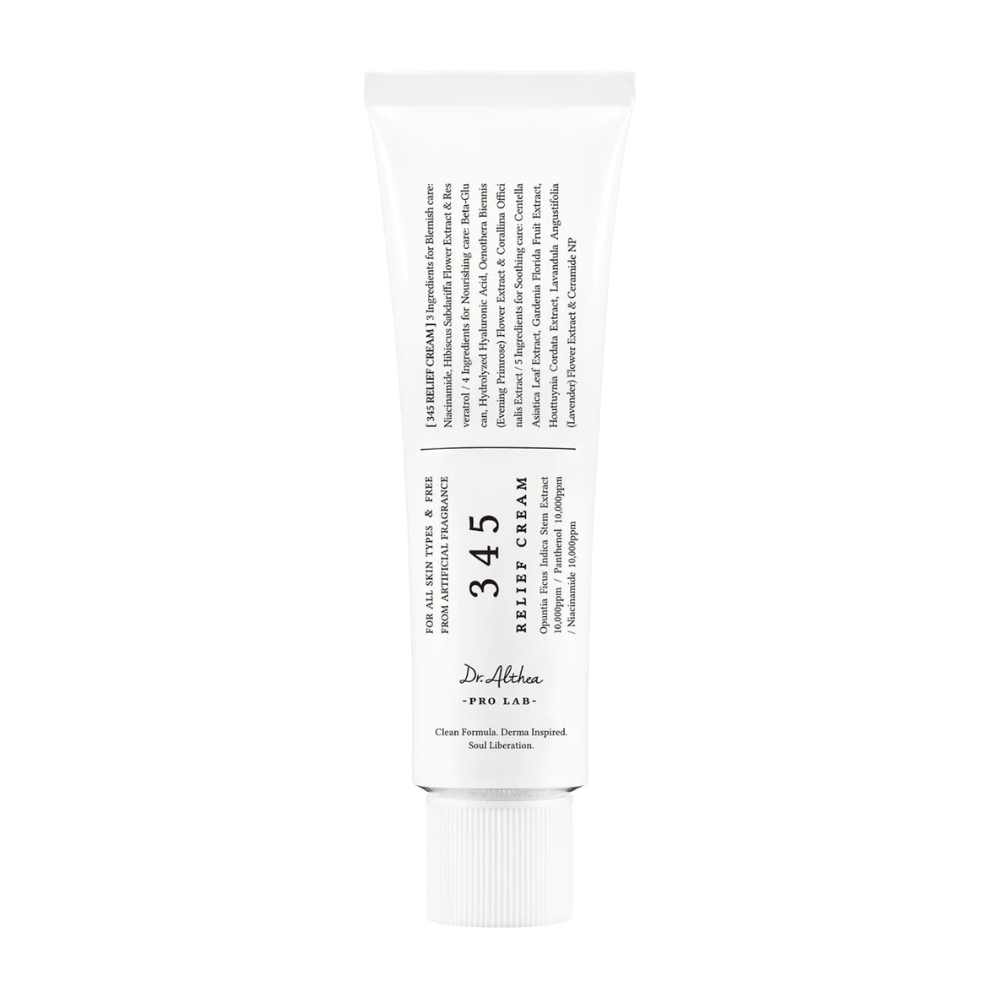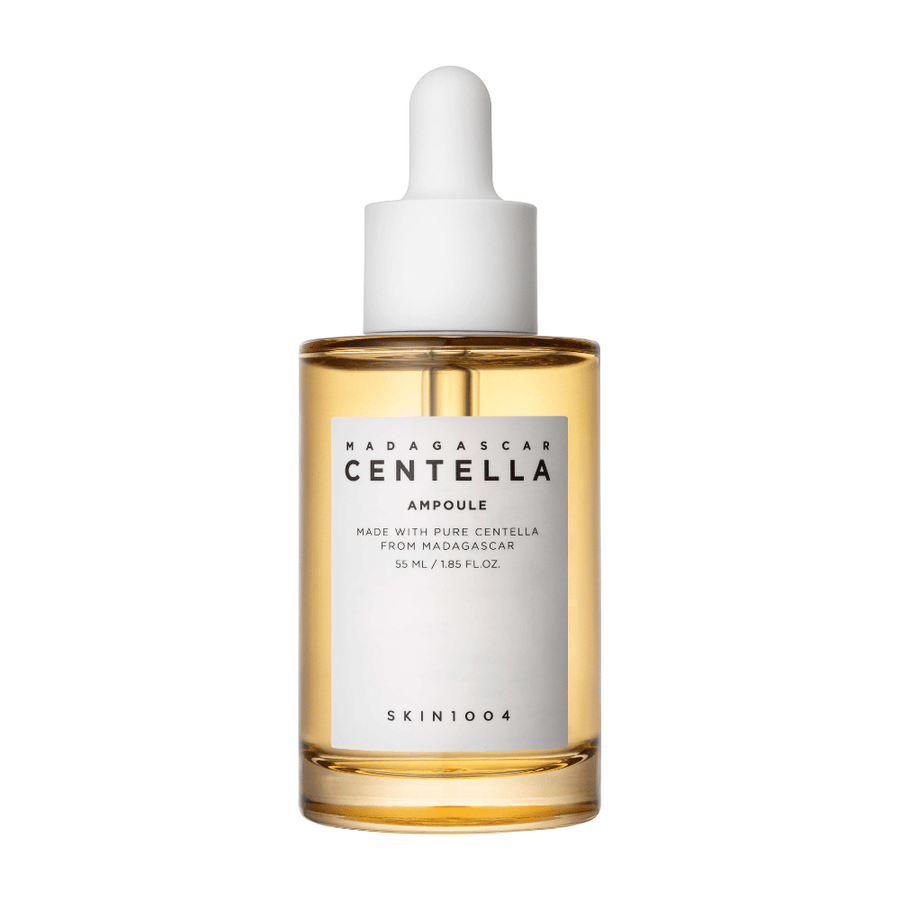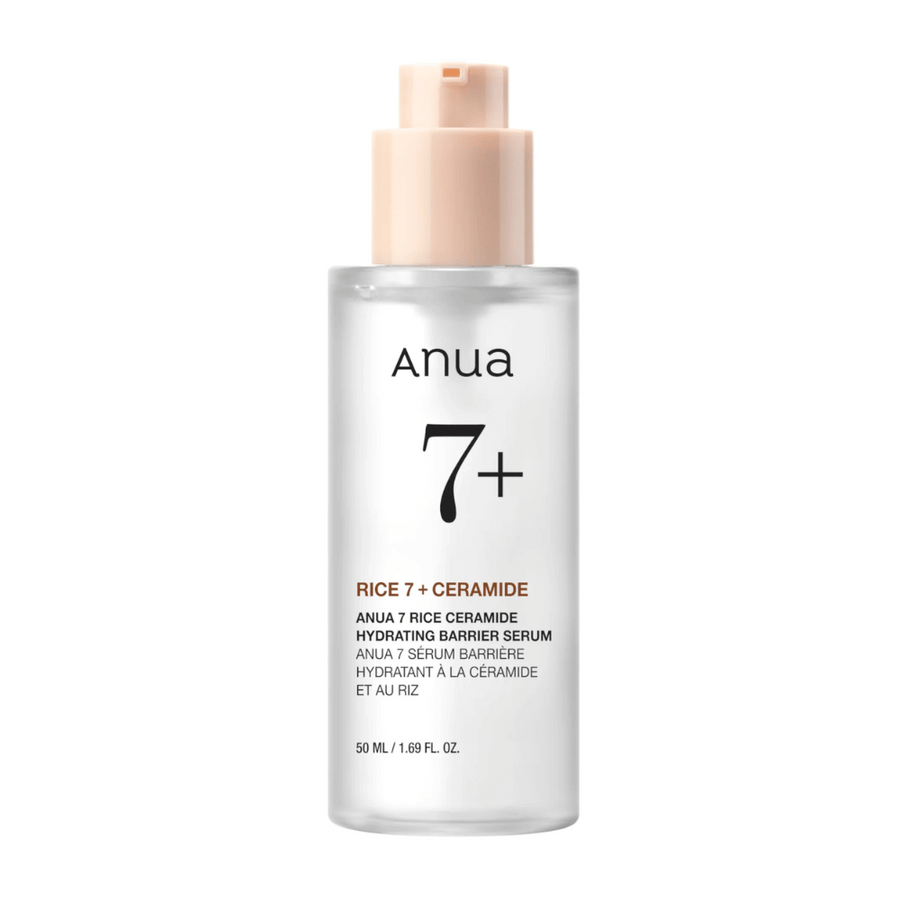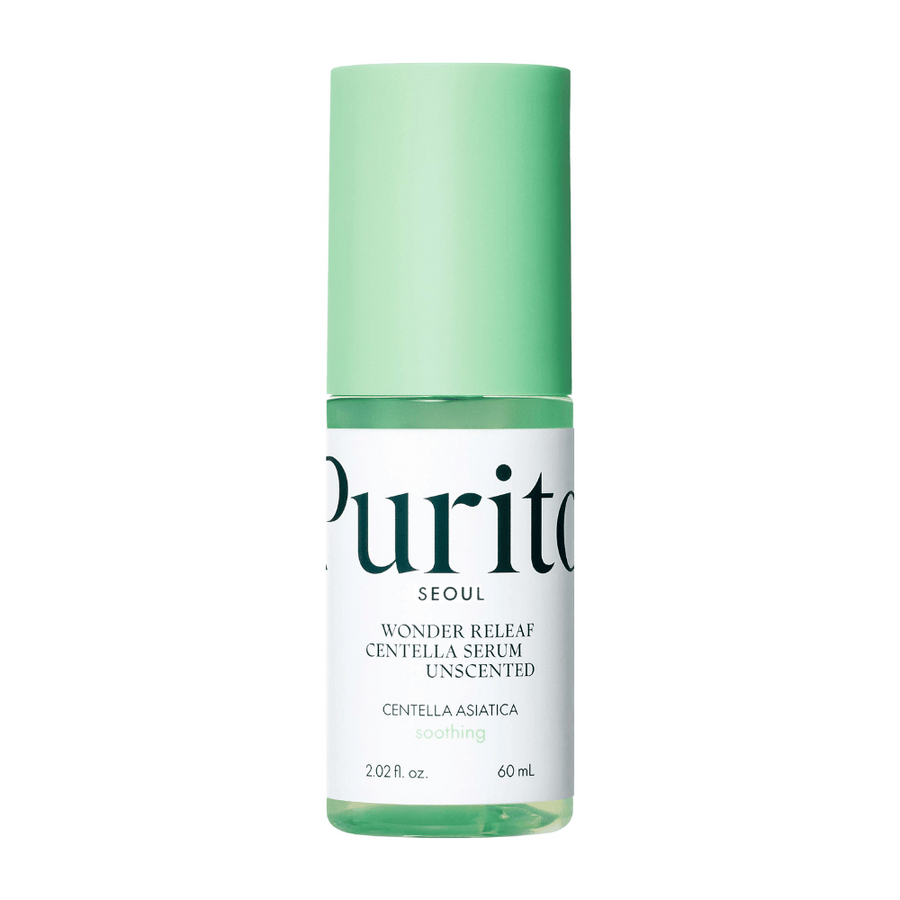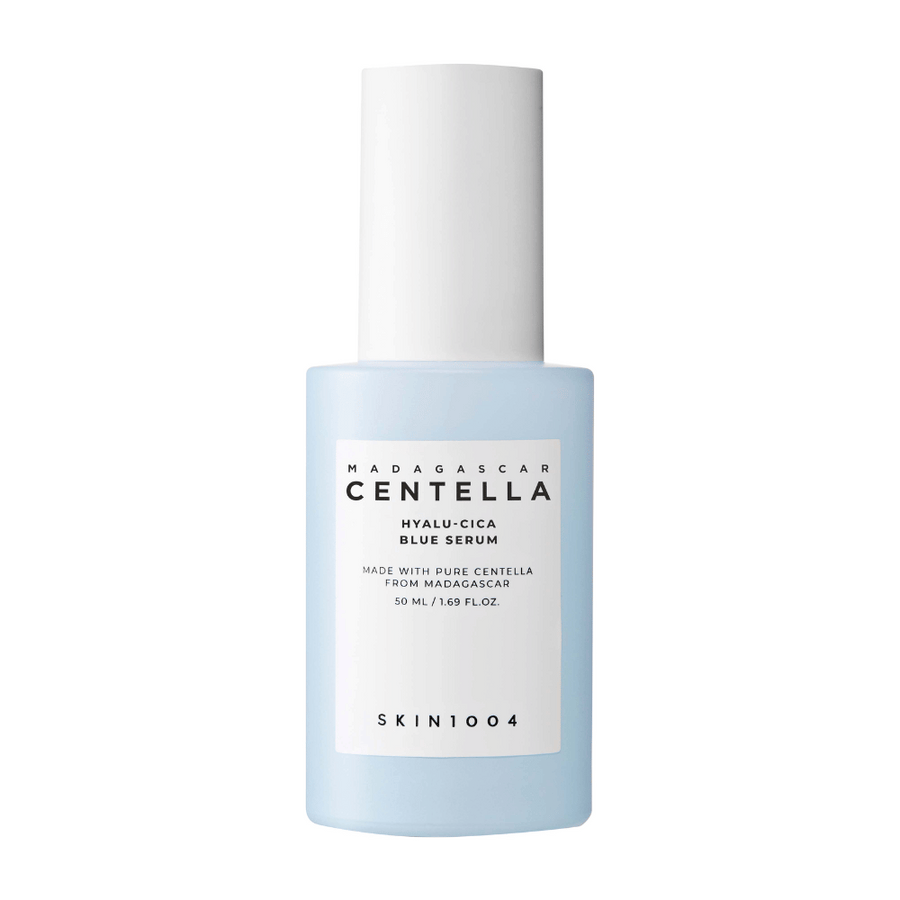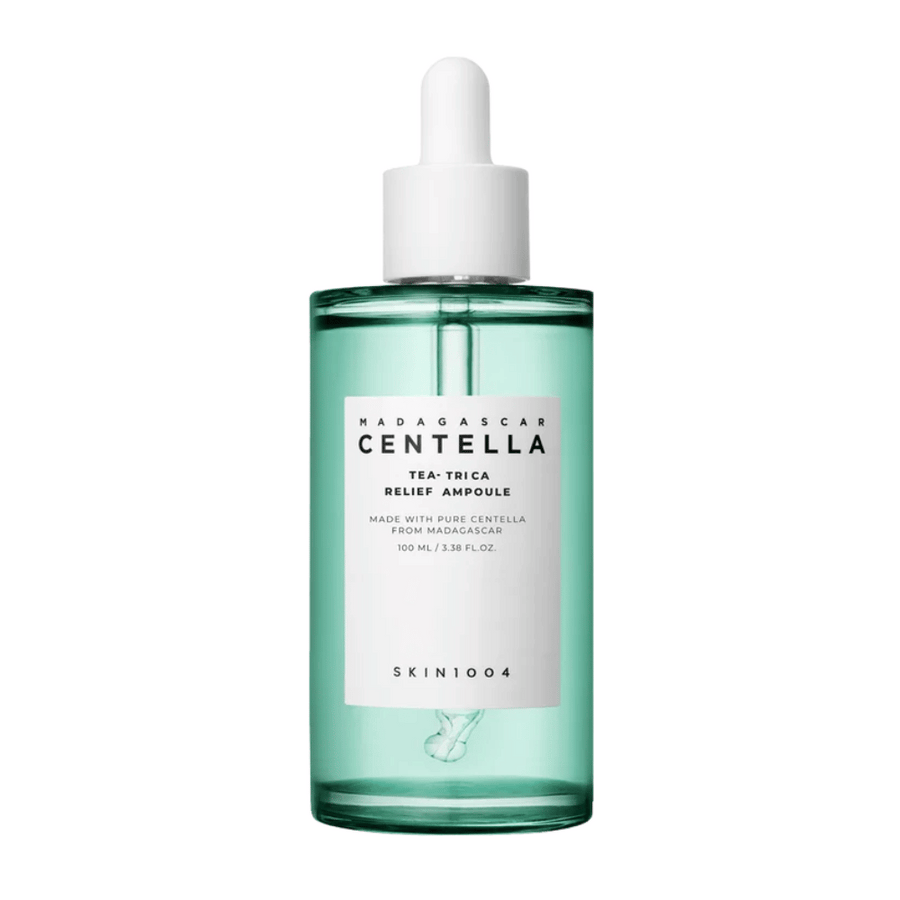Serum for sensitive skin
Ingredients and builds up the skin barrier
For sensitive skin, choosing a serum is about providing moisture, calm, and balance without causing irritation. Many serums promise results, but not all are suitable for skin that easily reacts. To avoid redness and stinging, it is important to choose mild, pH-balanced serums with soothing and barrier-strengthening ingredients – like panthenol, centella asiatica, hyaluronic acid, and ceramides.
With us, you will find several Korean serums specially developed for sensitive skin. Korean skincare focuses on balance and skin health rather than strong active ingredients, making these serums perfect for those who want to build a strong and harmonious skin.
What is a serum and why is it important for sensitive skin?
A serum is a concentrated treatment used after cleansing and before moisturizer. It contains higher levels of active ingredients and is formulated to penetrate deeper into the skin.
For sensitive skin, the serum fulfills several important functions. It can restore moisture balance, soothe irritation, and strengthen the skin barrier. In Korean skincare, the serum is seen as part of the skin's “caring center,” the step that determines whether the skin becomes stressed or stable.
Korean serums for sensitive skin are often:
- pH-balanced (around 5.5) to match the skin's natural level
- Free from alcohol and strong perfumes
- Enriched with natural extracts and fermented ingredients that improve the skin's tolerance
A good serum should not only provide temporary moisture but help the skin to tolerate more and react less over time.
What type of serum suits sensitive skin?
Not all serums are created equal. For sensitive skin, it is important to choose products that support the skin barrier instead of challenging it. Here are the types of serums that usually work best:
Moisturizing serums
Moisture is the foundation of calm skin. Serums with hyaluronic acid, glycerin, betaine, and beta-glucan help the skin retain water and reduce tightness. In Korean skincare, multi-molecular hyaluronic acid is often used, meaning the molecules are of different sizes to hydrate both on the surface and deep down.
Calming serums
If the skin easily flares up or feels inflamed, a calming serum with Cica (centella asiatica), panthenol, or madecassoside is a perfect choice. These ingredients strengthen the capillaries, reduce redness, and make the skin more resistant to stress.
Barrier-strengthening serums
Sensitive skin is often due to a weakened barrier. Serums with ceramides, squalane, cholesterol, and niacinamide (up to 5%) strengthen the skin's lipid layer and help it withstand irritation. In Korean skincare, these are often combined with moisturizers to build up the skin long-term.
Antioxidant serums (mild vitamin C)
Vitamin C can be effective but irritating in high concentrations. For sensitive skin, milder derivatives like ascorbyl glucoside or sodium ascorbyl phosphate work, providing glow and protection against free radicals without stinging.
Can Can you be sensitive to hyaluronic acid?
Many believe that hyaluronic acid can cause allergic reactions, but in reality, it is a natural substance already present in the skin. When reactions occur, it is almost always due to the formulation, such as preservatives, fragrances, or too high a concentration of low molecular weight hyaluronic acid.
For sensitive skin, it's best to choose a serum that contains a combination of low and high molecular weight hyaluronic acid. This way, the skin receives both surface moisture and long-lasting hydration without the risk of imbalance.
How to use serum when you have sensitive skin?
When you have sensitive skin, the rule is less is more. A serum should be introduced slowly and used correctly to allow the skin to adjust.
- Start slowly – use the serum 2–3 times a week initially, and gradually increase.
- Apply to lightly damp skin – it helps ingredients like hyaluronic acid to bind water better.
- Use only one serum at a time – avoid mixing multiple active products simultaneously.
- Follow up with a barrier cream – an important step to lock in moisture.
- Always patch-test new products – especially if they contain active ingredients.
In a typical Korean routine, the serum is used after toner or essence, when the skin is still slightly damp. This way, it is distributed evenly and absorbed effectively without causing irritation.
Ingredients to look for (and avoid)
Good ingredients for sensitive skin:
- Centella Asiatica (Cica): soothes and strengthens blood vessels.
- Panthenol (vitamin B5): repairs and hydrates.
- Ceramides & squalane: rebuild the skin's protective barrier.
- Beta-glucan & glycerin: binds moisture and makes the skin more supple.
- Niacinamide (≤ 5 %): strengthens the barrier and reduces redness.
- Green tea & propolis: antioxidant and anti-inflammatory.
Ingredients to avoid:
- High levels of alcohol denat.
- Essential oils and strong perfumes.
- Pure retinol or vitamin C over 15%.
- Too strong acids (AHA/BHA) in the same routine.
Common mistakes when using serum
- Starting with too many products at once. Sensitive skin benefits from fewer steps.
- Using too strong active ingredients. Avoid high levels of acids, vitamin C, or retinoids initially.
- Not moisturizing after serum. The serum needs to be sealed with cream for long-lasting effect.
- Skipping sunscreen. Many soothing serums help the skin tolerate more – but UV radiation can quickly worsen the result.
Recommended Korean serums for sensitive skin
Korean skincare is known for combining effectiveness with gentle, skin-friendly formulations – and that's why these serums are particularly suitable for those with sensitive, reactive, or stressed skin. All five products below focus on soothing centella asiatica, hydration, and barrier-strengthening ingredients without unnecessary irritants.
ANUA 7 Rice Ceramide Hydrating Barrier Serum
A soft and nourishing serum that strengthens the skin barrier with ceramides and rice extract. Perfect for those who often experience dryness, tightness, or irritation and want to build a more stable, resilient skin over time.
Purito Wonder Releaf Centella Serum Unscented
A fragrance-free, balancing serum with a high concentration of centella asiatica. Ideal for those who easily get redness or want to calm the skin after stress, treatment, or breakouts — without the risk of further irritation.
SKIN1004 Madagascar Centella Hyalu-Cica Blue Serum
An intensely hydrating serum that combines hyaluronic acid and centella for both deep and surface moisture. Suitable for sensitive skin that also needs proper hydration and a light, fresh texture.
SKIN1004 Madagascar Centella Ampoule
A pure, centella-based ampoule that soothes and balances the skin in cases of redness, sensitivity, and imbalance. Simple and very mild formulation that works excellently when the skin feels stressed or overworked.
SKIN1004 Madagascar Centella Tea-Trica Relief Ampoule
The perfect “SOS product” for sensitive or problem-prone skin. With a combination of centella and tea extract, it provides quick relief for inflammation, redness, and breakouts — while also protecting with antioxidants.
FAQ – Common questions about serum for sensitive skin
Should you use serum if you have sensitive skin?
Yes, but choose mild and hydrating serums. Avoid too strong active ingredients and start slowly.
Can you be sensitive to hyaluronic acid?
It is uncommon. Reactions are usually due to other ingredients in the product, not the hyaluronic acid itself.
Which serum is best for sensitive skin?
Serums with panthenol, centella asiatica, and ceramides are best for calming and strengthening the skin.
Is niacinamide safe for sensitive skin?
Yes, in low concentrations (up to 5%). It strengthens the skin barrier and reduces redness.
Can I combine Vitamin C and hyaluronic acid?
Yes, but choose a mild Vitamin C variant and hydrate well afterwards.

Amanda Jensen
Amanda is a passionate beauty expert with extensive experience in Korean skincare, haircare, and makeup. She loves testing new products, delving into ingredients, and sharing tips that help you find what truly works. You can reach Amanda at info@koreanbeauty.se for questions or feedback.



